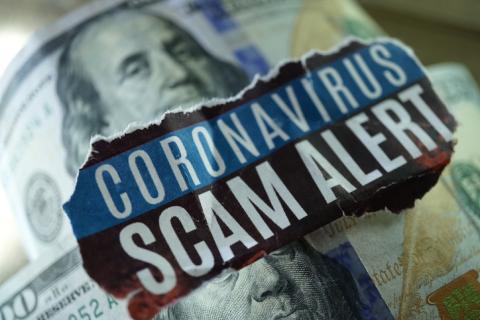Immunize Older Adults Against Fraud With a Dose of Information
Unfortunately, older adults are often the target of this type of fraud. They may be lonely and isolated at this time, an easy mark for a “helpful, friendly stranger.” Many seniors have a nest egg that the crooks hope to steal. Older adults may find it hard to just hang up on a salesperson. Declining cognitive abilities make a person an easier mark. And these days, with older adults at highest risk of serious illness from COVID-19, it’s easy to get their attention on the topic!
Now that a vaccine is on the scene, many crooks are turning their attention to vaccine-related scams. The U.S. Administration for Community Living, which includes the Administration on Aging, recently shared tips for avoiding vaccine fraud. The first step in protecting ourselves is to know the facts about the rollout of the vaccine:
- You likely will not need to pay anything out-of-pocket to get the vaccine during this public health emergency.
- You cannot pay to put your name on a list to get the vaccine.
- You cannot pay to get early access to the vaccine.
- You will not be solicited door to door to receive the vaccine.
- No one from Medicare or the Health Department will contact you.
- No one from a vaccine distribution site or health care payer, like a private insurance company, will call you asking for your Medicare number, Social Security number, or your credit card or bank account information to sign you up to get the vaccine.
Seniors on Medicare have been in the crosshairs of con artists. The Senior Medicare Patrol (SMP) is another great source of information. State SMPs are staffed by volunteers who empower and assist Medicare beneficiaries, their families, and caregivers to prevent, detect, and report health care fraud, errors, and abuse. They offer these tips for Medicare beneficiaries at this time:
- Contact your own doctor if you are experiencing potential symptoms of COVID-19.
- Do not give out your Medicare number, Social Security number, or personal information in response to unsolicited calls, texts, emails, home visits, or booths at health fairs and other public venues. If your personal information is compromised, it may be used in other fraud schemes as well.
- Be suspicious of anyone going door-to-door to offer free coronavirus or COVID-19 testing, supplies, treatments, or vaccines.
- Beware of providers offering other products, treatments, or medicines to prevent the virus. Check with your health care provider before paying for or receiving any COVID-19-related treatment.
- If you get a call, text, email—or even someone knocking on your door—claiming they can get you early access to the vaccine, STOP. That’s a scam.
- Carefully review your Medicare Summary Notice (MSN) or Explanation of Benefits (EOB), looking for errors or claims for products or services that weren’t received.
- Follow the instructions of your state or local government for other actions you should be taking in response to COVID-19.
Contact your local SMP for help. The Senior Medicare Patrol (SMP) is ready to provide Medicare beneficiaries, their families and caregivers with the information they need to:
- PROTECT themselves from Medicare fraud, errors, and abuse
- DETECT potential fraud, errors, and abuse
- REPORT their concerns.
SMPs help educate and empower Medicare beneficiaries in the fight against health care fraud. Your SMP can help you with your questions, concerns, or complaints about potential fraud and abuse issues. It also provides information and educational presentations. To locate your local Senior Medicare Patrol, call 1-877-808-2468 or visit www.smpresource.org.
